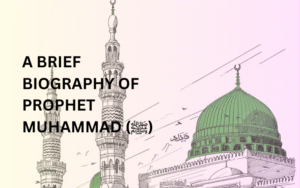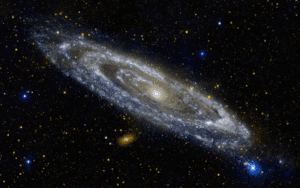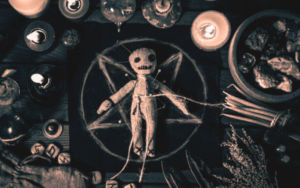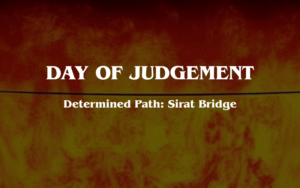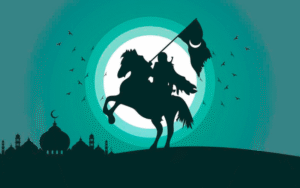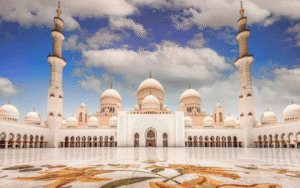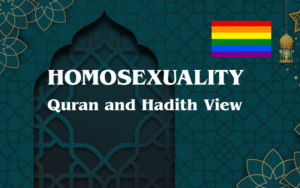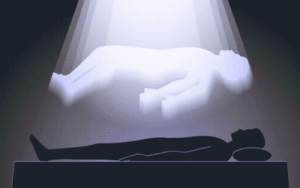Birth of Hazrat Isa (AS): The Divine Miracle that Changed History
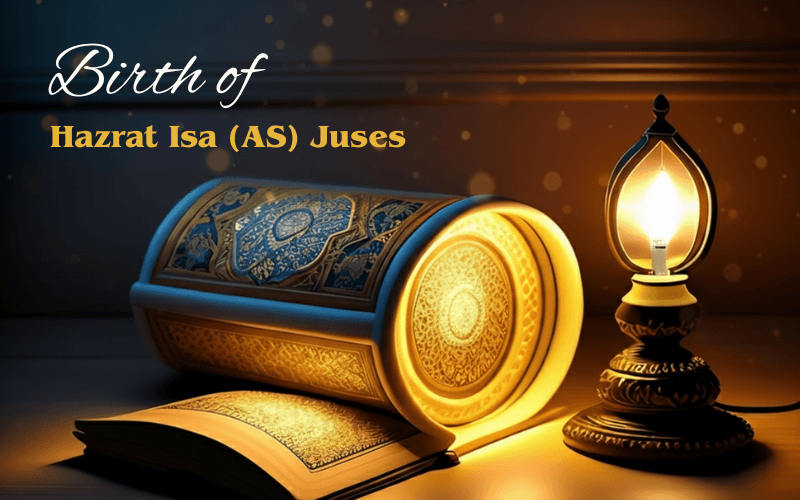
Hazrat Isa (AS), son of Maryam (AS), was the last prophet and a Messenger sent to the Children of Israel, to whom Allah the Almighty gave the divine scripture, the ‘Injeel’ (the Gospel). The period from his ascension to the heavens until the advent of the final Prophet of Islam, Hazrat Muhammad (ﷺ), is known as Fatrat al-Rusul, or the ‘interval in the coming of Messengers.’ According to Islamic belief, he will, by Allah’s command, descend to Earth again before the Day of Judgment. Under the leadership of Imam Mahdi, he will establish global peace and justice according to the law of Muhammad (Shari’ah). Recognizing his significance, Allah the Almighty discusses him in 98 verses across 15 chapters (Surahs) of the Holy Quran, so that humanity may attain correct knowledge about him. This is because two extremist views about him are prevalent, largely stemming from misunderstandings about the miraculous Birth of Hazrat Isa (AS):
- The Denial of the Jews: The Jews, who claim to be followers of Hazrat Musa (AS), deny him as a prophet and, in a most despicable manner, slander his pure and noble mother (Na’udhubillah – we seek refuge in Allah).
- The Exaggeration of the Christians: On the other hand, the Christians, who claim to be his followers, have exaggerated in their love, declaring him the ‘Son of God’ (Tawbah 9:30) and even ‘Allah’ himself as part of the Trinity (Al-Ma’idah 5:72-73).
The Holy Quran rejects both of these extremist views, offering instead a true and balanced portrayal of Hazrat Isa (AS) and his esteemed mother, Hazrat Maryam (AS), which this article will discuss in detail.
A Sacred Lineage: The Prelude to the Birth of Hazrat Isa (AS)
The background story leading to the Birth of Hazrat Isa (AS) revolves around his honored mother and grandmother.
The Vow of Imran’s Wife: The grandmother of Hazrat Isa (AS), Hannah, the wife of Imran, was a righteous woman. Being childless, she prayed fervently to Allah for a child and made a vow that she would dedicate the child in her womb to the service of Allah’s House, Bayt al-Maqdis, free from all worldly duties.
إِذْ قَالَتِ امْرَأَتُ عِمْرَانَ رَبِّ إِنِّي نَذَرْتُ لَكَ مَا فِيْ بَطْنِيْ مُحَرَّراً فَتَقَبَّلْ مِنِّي إِنَّكَ أَنتَ السَّمِيعُ الْعَلِيمُ
“Remember when the wife of Imran said, ‘My Lord, indeed I have pledged to You what is in my womb, consecrated [for Your service], so accept this from me. Indeed, You are the Hearing, the Knowing.'”
(Surah Al-Imran, Verse: 35)
The Birth of Hazrat Maryam (AS) and Allah’s Special Care: Although she had hoped for a son, Allah blessed her with a daughter, whom she named ‘Maryam’. Allah not only accepted her vow but also informed her that this daughter was no ordinary child. Allah said, “And the male is not like the female” (Al-Imran 3:36). Maryam’s mother prayed for her:
وَإِنِّي سَمَّيْتُهَا مَرْيَمَ وِإِنِّي أُعِيْذُهَا بِكَ وَذُرِّيَّتَهَا مِنَ الشَّيْطَانِ الرَّجِيمِ
“and I have named her Maryam, and I seek refuge for her in You and [for] her descendants from Satan, the expelled [from the mercy of Allah].”
(Surah Al-Imran, Verse: 36)
Allah accepted this prayer in the best way. The Messenger of Allah (ﷺ) said,
“No child of Adam is born but that Satan touches him at the time of his birth, causing him to cry out, except for Maryam and her son (Isa).”
(Sahih Bukhari, Hadis: 3286)
By Allah’s will, the Prophet Hazrat Zakariya (AS), a very old man at the time, was appointed as Hazrat Maryam’s guardian through the casting of lots.
The Chosen Woman: The Pious Life of Hazrat Maryam (AS)
Hazrat Maryam (AS) devoted herself completely to the worship of Allah in a secluded chamber (Mihrab) of Bayt al-Maqdis. Her purity and status were so elevated that Allah chose her above all the women of the world. The Messenger of Allah (ﷺ) said:
“The best of the women of Paradise are four: Khadijah bint Khuwaylid, Fatimah bint Muhammad, Maryam bint Imran, and Asiyah, the wife of Pharaoh.”
(Silsilah Sahihah, Hadis: 1508)
Special signs or ‘karamat’ (mini-miracles) would manifest for her from Allah. Whenever Hazrat Zakariya (AS) entered her chamber, he would find fresh, out-of-season fruits with her. When he asked about them, she would reply,
إِنَّ اللّٰهَ يَرْزُقُ مَن يَشَآءُ بِغَيْرِ حِسَابٍ
“It is from Allah. Indeed, Allah provides for whom He wills without account.”
(Surah Al-Imran, Verse: 37)
The Great Tidings: Announcing the Miraculous Birth of Hazrat Isa (AS)
One day, while Hazrat Maryam (AS) was engaged in worship, an extraordinary event occurred. Allah the Almighty sent the Ruh al-Qudus, or the Angel Jibril (AS), to her in the form of a perfect man.
فَاَتَّخَذَتْ مِنْ دُوْنِهِمْ حِجَابًاۗ فَاَرْسَلْنَآ اِلَيْهَا رُوْحَنَا فَتَمَثَّلَ لَهَا بَشَرًا سَوِيًّا
“And she took, in seclusion from them, a screen. Then We sent to her Our Spirit [Jibril], and he represented himself to her as a well-proportioned man.”
(Surah Maryam, Verse: 17)
Seeing an unknown man in her private quarters, the virgin and pure Maryam became extremely frightened. Seeking to protect her chastity, she sought refuge in Allah, saying,
إِنِّي أَعُوذُ بِالرَّحْمَٰنِ مِنكَ إِن كُنتَ تَقِيًّا
“Indeed, I seek refuge in the Most Merciful from you, if you should be God-fearing.”
(Surah Maryam, Verse: 18).
Jibril (AS) reassured her, saying,
قَالَ إِنَّمَا أَنَا رَسُولُ رَبِّكِ لِأَهَبَ لَكِ غُلَامًا زَكِيًّا
“I am only the messenger of your Lord to give you [news of] a pure boy.”
(Surah Maryam, Verse: 19)
Hearing this, Hazrat Maryam (AS) was astounded. She said,
قَالَتْ أَنَّىٰ يَكُونُ لِي غُلَامٌ وَلَمْ يَمْسَسْنِي بَشَرٌ وَلَمْ أَكُ بَغِيًّا
“How can I have a boy while no man has touched me and I have not been unchaste?”
(Surah Maryam, Verse: 20).
Jibril (AS) informed her of Allah’s infinite power:
قَالَ كَذٰلِكِۚ قَالَ رَبُّكِ هُوَ عَلَيَّ هَيِّنٌۗ وَّلِنَجْعَلَهٗٓ اٰيَةً لِّلنَّاسِ وَرَحْمَةً مِّنَّاۗ وَكَانَ اَمْرًا مَّقْضِيًّا
“He said, ‘Thus [it will be]; your Lord says, ‘It is easy for Me, and We will make him a sign (Ayah) to the people and a mercy from Us. And it is a matter [already] decreed.'”
(Surah Maryam, Verse: 21)
Thereafter, Jibril (AS) blew into the collar of her garment, and through Allah’s Word (Kalimah), ‘Be’ (Kun), she conceived.
Seclusion, Labor Pains, and Divine Comfort
After conceiving, Hazrat Maryam (AS) withdrew from the people to a remote place in Bethlehem. When the pains of childbirth became intense, she took shelter under a palm tree. Overwhelmed by physical agony and the fear of social disgrace, she was so distressed that she wished for death, saying,
يَا لَيْتَنِي مِتُّ قَبْلَ هَٰذَا وَكُنتُ نَسْيًا مَّنسِيًّا
“Oh, I wish I had died before this and was in oblivion, forgotten.”
(Surah Maryam, Verse: 23).
In that moment of utter despair, Allah sent her miraculous aid. A voice called out to her from below:
أَلَّا تَحْزَنِي قَدْ جَعَلَ رَبُّكِ تَحْتَكِ سَرِيًّا – وَهُزِّيْ إِلَيْكِ بِجِذْعِ النَّخْلَةِ تُسَاقِطْ عَلَيْكِ رُطَبًا جَنِيًّا – فَكُلِيْ وَاشْرَبِيْ وَقَرِّيْ عَيْنًا
“Do not grieve; your Lord has provided beneath you a stream. And shake toward you the trunk of the palm tree; it will drop upon you ripe, fresh dates. So eat and drink and be contented”
(Surah Maryam, Verses: 24-26)
The First Miracle: Speaking from the Cradle and Testifying to His Mother’s Purity
Following Allah’s command, Hazrat Maryam (AS) returned to her community with her newborn child. What she had feared came to pass. Upon seeing her, everyone began to question her chastity and reprimand her harshly. They said,
يَا أُخْتَ هَارُونَ مَا كَانَ أَبُوكِ امْرَأَ سَوْءٍ وَمَا كَانَتْ أُمُّكِ بَغِيًّا
“O sister of Harun, your father was not a man of evil, nor was your mother unchaste.”
(Surah Maryam, Verse: 28).
Hazrat Maryam (AS), remaining silent as instructed by Allah, gave no answer and simply pointed to the infant in her arms. This astonished the people even more, and they said, “How can we speak to one who is a child in the cradle?”
It was then that one of the greatest miracles in history occurred. By the command of Allah, the infant Hazrat Isa (AS), only a few days old, spoke with perfect clarity:
قَالَ إِنِّيْ عَبْدُ اللهِ ٰآتَانِيَ الْكِتَابَ وَجَعَلَنِيْ نَبِيًّا – وَّجَعَلَنِيْ مُبَارَكًا أَيْنَ مَا كُنْتُ وَأَوْصَانِيْ بِالصَّلَاةِ وَالزَّكَاةِ مَا دُمْتُ حَيًّا – وَّبَرًّا بِوَالِدَتِيْ وَلَمْ يَجْعَلْنِيْ جَبَّارًا شَقِيًّا – وَالسَّلَامُ عَلَيَّ يَوْمَ وُلِدتُّ وَيَوْمَ أَمُوْتُ وَيَوْمَ أُبْعَثُ حَيًّا
“[The infant] said, ‘Indeed, I am the servant of Allah. He has given me the Scripture and made me a prophet. And He has made me blessed wherever I am and has enjoined upon me prayer and zakah as long as I remain alive. And [made me] dutiful to my mother, and He has not made me a wretched tyrant. And peace is on me the day I was born and the day I will die and the day I am raised alive.'”
(Surah Maryam, Verses: 30-33)
This miraculous declaration left everyone present dumbfounded. It was the greatest proof of Hazrat Maryam’s (AS) purity and the first proclamation of the prophethood of Hazrat Isa (AS).
Resolving the Controversy: The Quran’s Final Declaration and Analysis
For those who express astonishment at the Birth of Hazrat Isa (AS) without a father, the Quran presents the example of the creation of Hazrat Adam (AS), who was created without either a father or a mother.
إِنَّ مَثَلَ عِيْسَى عِنْدَ اللهِ كَمَثَلِ آدَمَ خَلَقَهُ مِنْ تُرَابٍ ثُمَّ قَالَ لَهُ كُنْ فَيَكُوْنُ
“Indeed, the example of Isa to Allah is like that of Adam. He created him from dust; then He said to him, ‘Be,’ and he was.”
(Surah Al-Imran, Verse: 59)
Allah’s Testimony: Allah the Almighty Himself testifies to the purity and chastity of Hazrat Maryam (AS), saying:
وَمَرْيَمَ ابْنَتَ عِمْرَانَ الَّتِيْٓ اَحْصَنَتْ فَرْجَهَا فَنَفَخْنَا فِيْهِ مِنْ رُّوْحِنَا وَصَدَّقَتْ بِكَلِمٰتِ رَبِّهَا وَكُتُبِهٖ وَكَانَتْ مِنَ الْقٰنِتِيْنَ
“And [the example of] Maryam, the daughter of Imran, who guarded her chastity, so We blew into [her garment] through Our spirit, and she believed in the words of her Lord and His scriptures and was of the devoutly obedient.”
(Surah At-Tahrim, Verse: 12)
Special Status and Characteristics
Characteristics of Hazrat Maryam (AS):
- She was among the greatest of all women, chosen and purified by Allah.
- She was chaste, humble, and constantly devoted to the worship of Allah.
- Allah Himself named her ‘Maryam’ and gave her the title ‘Siddiqah‘ (the Truthful).
- She is the only woman whose name is mentioned directly in the Quran.
Characteristics of Hazrat Isa (AS):
- The Birth of Hazrat Isa (AS) marks him as the only prophet in the world created without a father.
- Allah Himself named him ‘the Messiah, Isa, son of Maryam.’
- He delivered a profound speech while still in his mother’s cradle.
- By Allah’s permission, he could give sight to the blind, heal the leper, and bring the dead back to life.
- He was sent to the Children of Israel and gave the clear prophecy of the coming of the final Prophet, ‘Ahmad’ (ﷺ) (Surah As-Saff 61:6).
- Allah saved him from the hands of conspirators, raised him to the heavens alive, and he will descend to Earth again.
Lessons and Conclusion
The story of the Birth of Hazrat Isa (AS) is not merely a miracle but holds countless lessons for humankind. It demonstrates the infinite power of Allah, the strength of prayer, the reward of piety, and the virtue of patience. This event teaches us that if we place our complete trust in Allah and make even a slight effort, His extraordinary help descends, as was the case with the command to shake the trunk of the palm tree.
Above all, this discussion makes it clear that Hazrat Isa (AS) is not a deity or the son of Allah, but rather an honored servant, a Messenger of Allah, and one of His special signs. Islam affords him the highest respect, but it recognizes only the one Allah as the sole entity worthy of worship. This is the straight and correct path, about which people needlessly dispute.
Frequently Asked Questions
How does Islam view Hazrat Isa (AS) and his mother, Hazrat Maryam (AS)?
Islam rejects both the Jewish denial of Hazrat Isa (AS) as a prophet and the Christian exaggeration of him as the "Son of God." In Islam, Hazrat Isa (AS) is a highly respected Prophet and a Messenger of Allah. His mother, Hazrat Maryam (AS), is honored as a righteous and pure woman, chosen by Allah above all other women in the world.
How did Hazrat Isa (AS) speak from the cradle?
After his birth, Hazrat Maryam (AS) faced accusations from her community. Following Allah's command, she pointed to the newborn infant, who then spoke by Allah's will. The infant Hazrat Isa (AS) proclaimed, "Indeed, I am the servant of Allah. He has given me the Scripture and made me a prophet," thereby testifying to his mother's purity and his own status as a prophet. This was his first miracle.
What is the significance of the birth of Hazrat Isa (AS) without a father?
The birth of Hazrat Isa (AS) without a father is a miraculous sign of Allah's infinite power. The Quran resolves this controversy by comparing his creation to that of Hazrat Adam (AS), who was created without a father or a mother. This example shows that Allah has the power to create a human in any way He wills by simply saying "Be," and he is.
What are some of the key characteristics and miracles of Hazrat Isa (AS)?
Besides his miraculous birth, the article mentions that Hazrat Isa (AS) had several special characteristics:
- He was the only prophet created without a father.
- He spoke from the cradle.
- By Allah's permission, he could give sight to the blind, heal the leper, and even bring the dead back to life.
- He was raised to the heavens alive and will descend to Earth again before the Day of Judgment.
